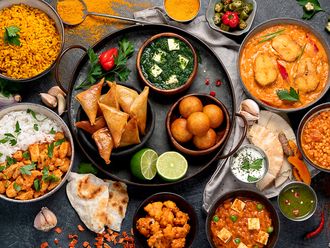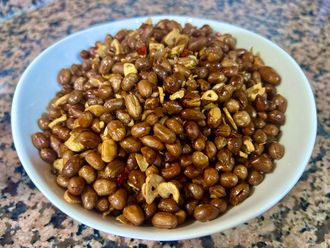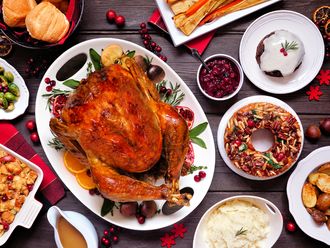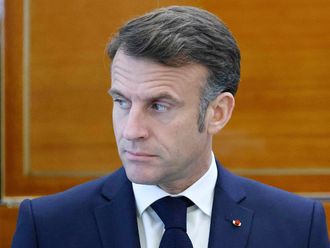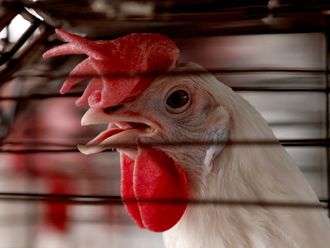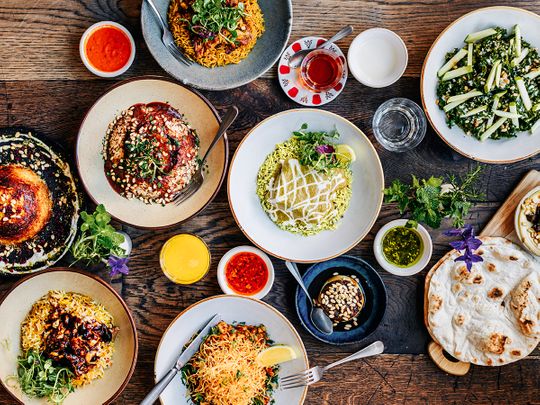
Bahraini cuisine is a reflection of its trade influences, explains 52-year-old Bahraini Chef Roaya Saleh. She is showcasing the country's classic recipes at Rising Flavours in Expo 2020 Dubai, today.
All the world’s a plate
Known as an island nation, Bahrain’s cuisine is a testament to trade that took place decades ago, especially with India.
“If you were to decode our cuisine, you would find out that we use a lot of herbs and spices because Bahraini cuisine is driven by the trade through India, Iran and Yemen. We were introduced to spices like that, along with produce like herbs and saffron from Iran. Our culture grew from using many spices from other countries, especially from Indian cuisine because a lot of rice is involved in our dishes. And the interesting thing is, each household uses them in different ways, there is no set way to using your spices – it all depends on you and it is liberating.”
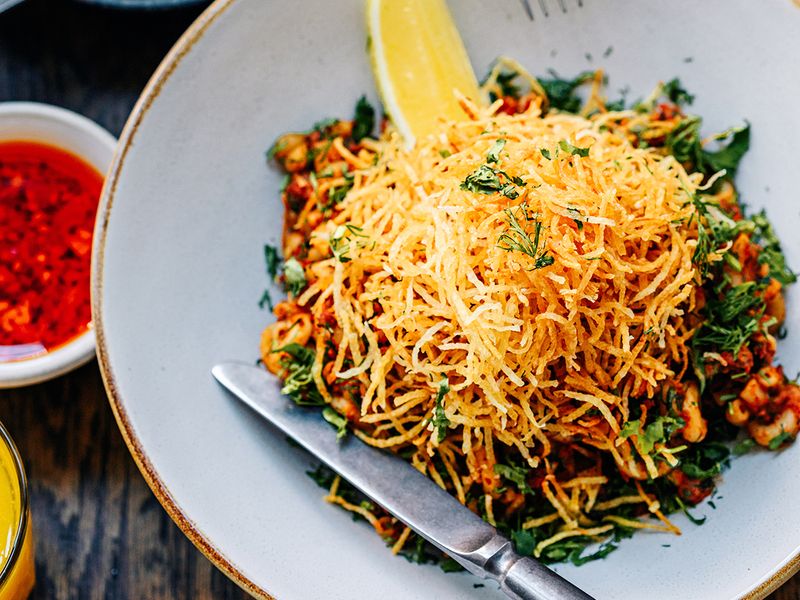
A lot of the cuisine comprises of an equal mix of meat, seafood, rice and dates with the machboos – a dish with meat or fish, served over a bed of spiced rice cooked in broth – being commonly served. Rice is at the heart of it all. “Using the best quality of rice isn’t just essential, rather you have to make sure it is not too sticky, or too fluffy. The more liquid you add to the rice, the more you're going to fail in achieving that fluffiness. So the best way to get it right is through balance. The liquid, which is either stock or water, has to be used as little as possible to come up with the best results.”
In addition to this, popular dishes on the Bahraini menu include fried chicken liver with kuboos or khubz, the Arabic pita bread, a version of the Indian biryani and yellow lentils known as dal in India.
Seafood also plays an essential role, with the Hamour (grouper) fish, typically served either grilled, fried, or steamed. Other recipes include those made with local fish such as Safi (rabbitfish), mackerels and sobaity (sea bream). These, too, are eaten with rice.
However, when it comes to identifying dishes specifically under the cuisine, Saleh does not believe in the concept. She says food is universal.
There are no cuisines, only techniques
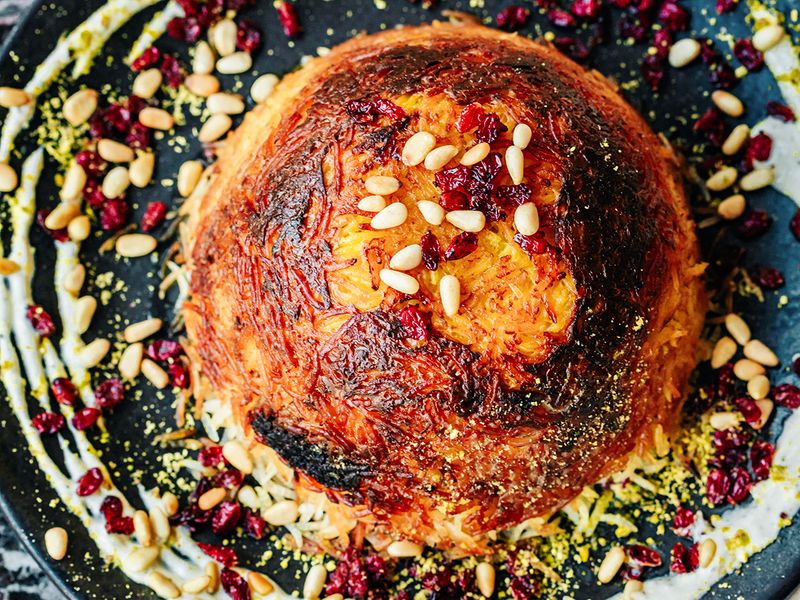
After leaving the corporate world behind, Saleh took it upon herself to educate everyone who visits her restaurant – villa mamas – about her country’s palate. She believes there are no cuisines, as such there are techniques to cooking and traditions that have been carried on for years.
“All my life I was involved in food, starting from farming. Being a chef is not only a career but my absolute passion. From when I was little, I grew up on a farm in Iran, because my mother was from there. We would spend our holidays over there and it was the knowledge I gained during this time, which helped me understand the different herbs, fruits, vegetables, cattle and dairy… all my resources, better. So when I cooked my food, I understood how to truly respect it, how to modify it to what I wanted to deliver at the end of the day.
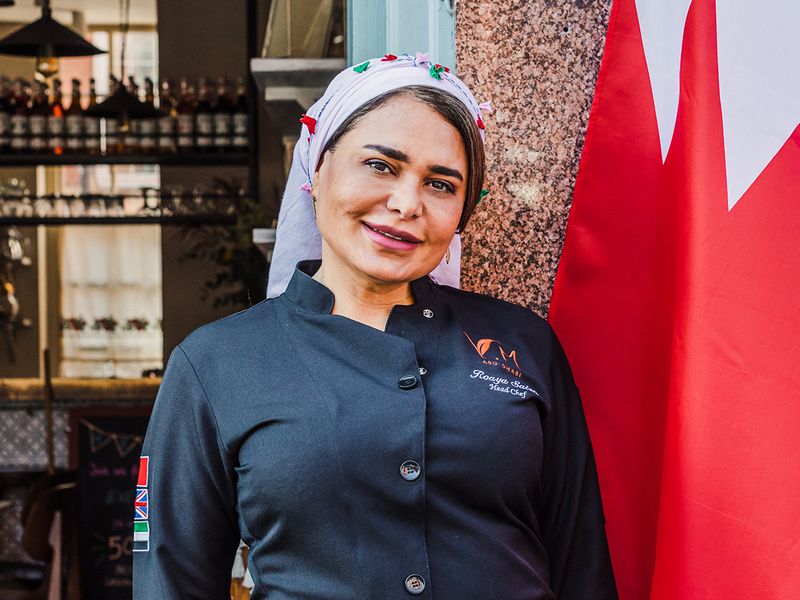
“I believe food is universal. There is no such thing called Bahraini food, or English food or Italian food. Historically, our ancestors have used a particular technique of cooking food and we have just carried it on for generations. So to label a country’s gastronomy as cuisine is not the challenge, educating them is.”
In addition to this, Saleh believes the authentic Bahraini dining experience begins at home. Growing up, her exposure to food was expansive. However, her ideas weren’t shared in the same way by her audience when she first opened the restaurant, thereby causing a misunderstanding.
Educating the public pose a challenge
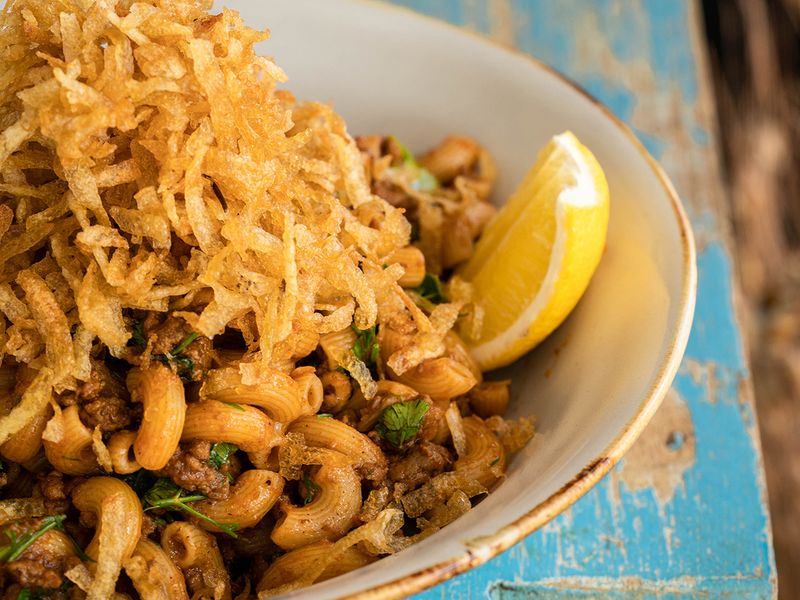
When Saleh opened Villa Mamas, people who visited her restaurant were quite shocked because they weren’t as accepting as she thought they would be. “There’s a lot of misunderstanding about the cuisine, you know. Bahraini cuisine, before I started, was considered a cuisine that was exclusively served only at home. No chef, before me, elaborated on the cuisine. So some of the public were surprised and shocked like, ‘How can you sell what we can eat and cost us 10 pounds or 20 dollars? And sell in a restaurant for double the price?’ ‘Why would I get out from my comfort zone, and have food – which I eat every day, costing me nothing – to go and sit in a restaurant and pay double for it. This is crazy.’ ‘This is this is not acceptable.’ … those were the reactions.
“Until today, I have the challenge of educating people. Spreading the knowledge about ingredients, differentiating between frozen to fresh, the different kinds of fish served when they are given something to eat... people cannot differentiate it. After I started serving this cuisine at my restaurant, I faced a lot of hate because of the challenges people had from not understanding the cuisine, and thinking of it as inexpensive.”
Despite her challenges, Saleh remains focused on one thing…
Keeping Bahraini cuisine on the food map
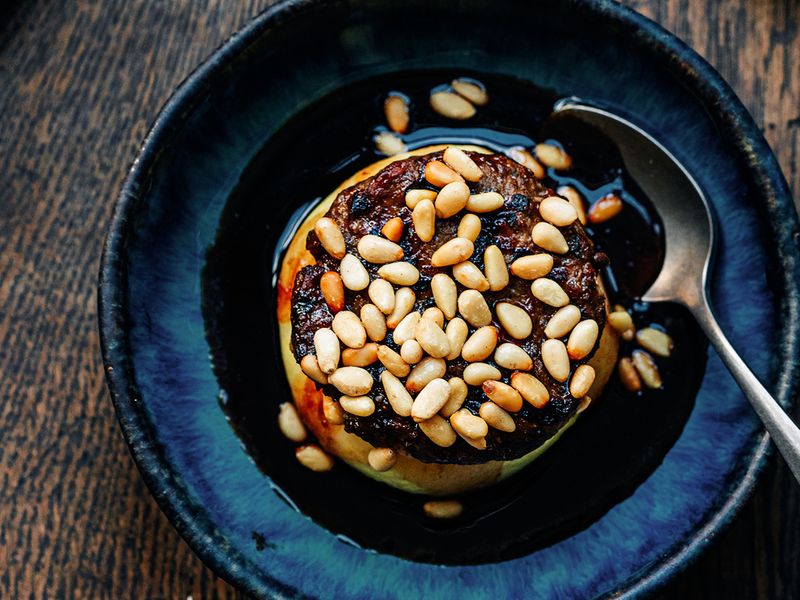
As time progressed, Saleh eventually found success and branched out in London, educating those of her country’s culture and palate. Today, the chef has also extended her culinary passion in the UAE with her first branch in Abu Dhabi.
As for plans, now that Saleh has arrived at Expo 2020 Dubai, she aims to open a permanent shop in the Emirate. “We are in talks but we always go forward with very cautious steps, knowing exactly what we are going to offer and that we will be able to deliver with the same talent with the same honesty, using our values wherever we are. We don’t want to rush it, but we will be opening one of our largest outlets soon.”
Now that you have an idea of Bahraini cuisine, try out Chef Saleh’s recipe for making Chicken Machboos at home.
Share your recipes with us at food@gulfnews.com




